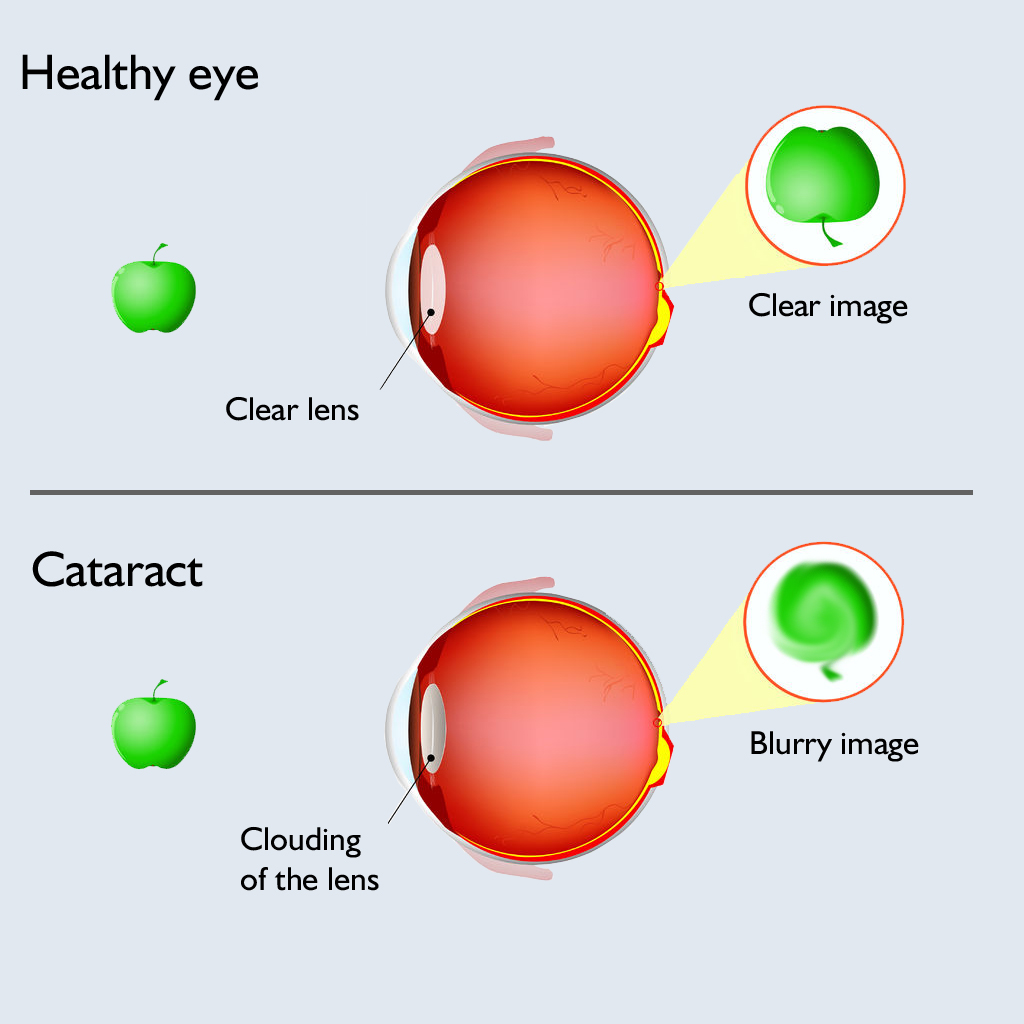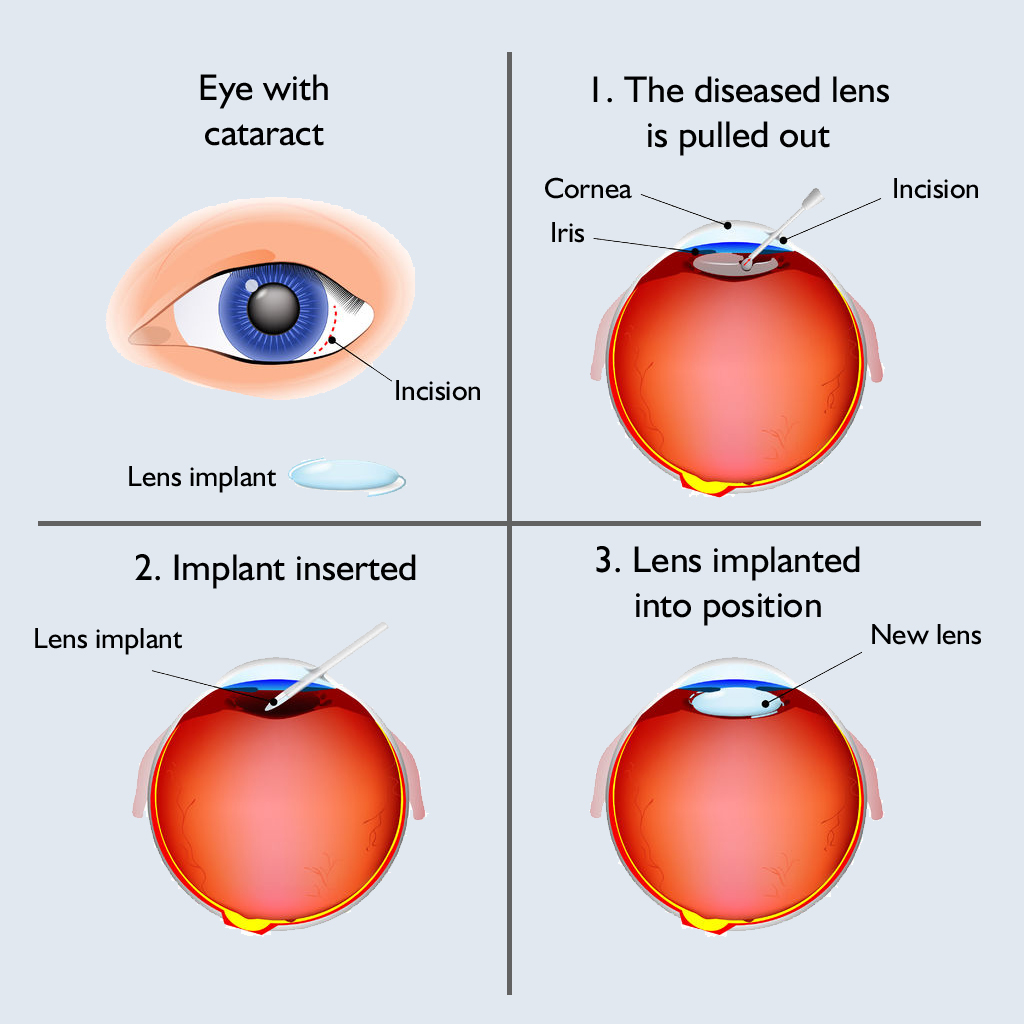Cataracts are a common problem, over 40 million cataract surgeries are performed per year worldwide. A cataract is a clouding of the lens of your eye which may cause your vision to become blurry or misty. They appear as opaque, cloudy patches in your field of vision.
Since cataracts take time to develop, half of the patients affeted by the condition are over the age of 65. However, it can occur at any age (especially if it runs in your family). In some cases, people are born with cataracts. The condition can affect one or both of your eyes.
As you become older cataracts usually become more prevalent. There are certain risk factors (beside age) which make you more prone to developing this condition such as:
- smoking
- diabetes
- diseases of the immune system




